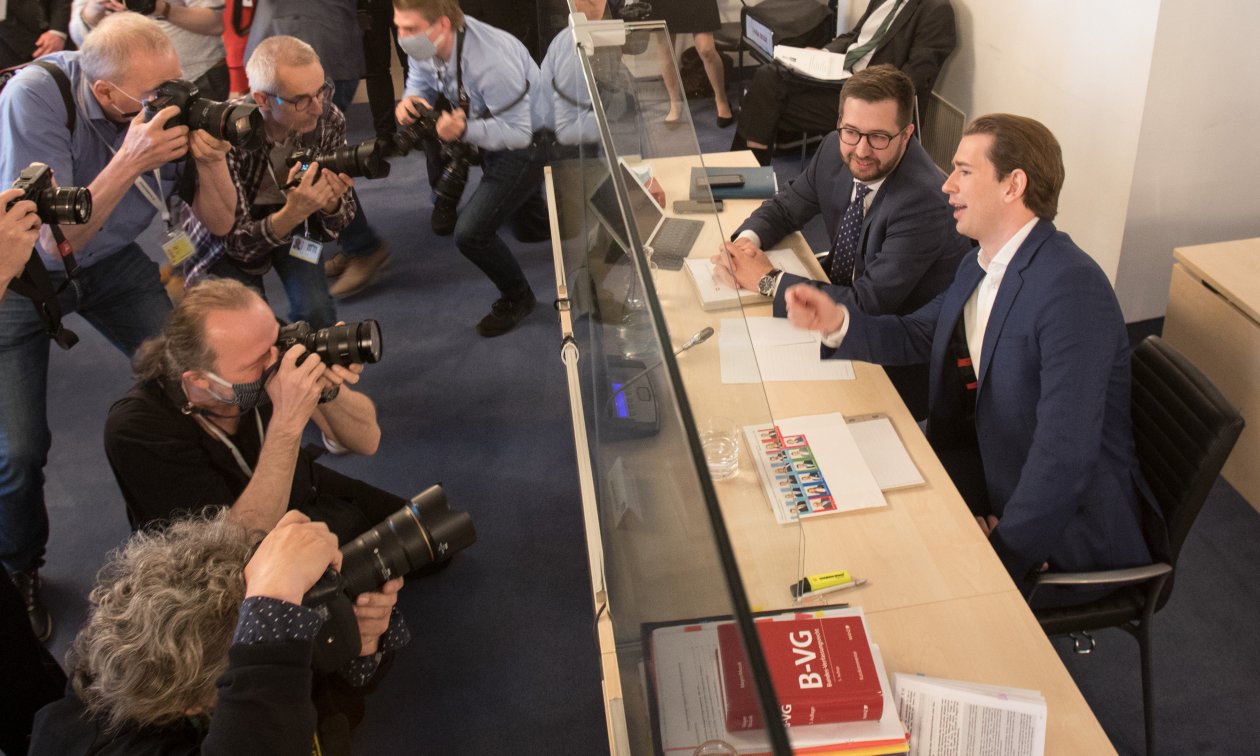JohnKlein94's blog
Government contracts in exchange for campaign donations: The deal that then-FPÖ politician Heinz-Christian Strache offered to the alleged niece of a Russian oligarch in Ibiza. When the newspapers Süddeutsche Zeitung and Spiegel Online publish secretly filmed recordings of the conversation, Strache resigns as Austrian Vice Chancellor and the coalition with the ÖVP breaks up. Bastian Obermaier, head of investigations at Süddeutsche Zeitung, led the investigation into the "Ibiza case." He spoke about it on the Webtalk of the Academy of Political Education.
Bastian Obermaier arrives in a hotel room, is searched, has his cell phone taken away and is given headphones. Afterwards, the head of investigations at the newspaper Süddeutsche Zeitung is given 15 minutes to watch what he calls "the best video from Strache." The clips were filmed in Ibiza in 2017, shortly before the Austrian National Council elections. They show FPÖ politicians Heinz-Christian Strache and Johann Goodenus in a villa with the alleged niece of a Russian oligarch. Strache offers to support his party through campaign donations - through a "nonprofit association," bypassing the Court of Accounts. In return, he promises state contracts. When Süddeutsche Zeitung and Spiegel Online publish these recordings two years later, Heinz-Christian Strache - by then vice-chancellor - claims that it was a "bsoffne gschicht. Nevertheless, he resigned, the coalition with the ÖVP broke up, and new elections were held in Austria. Bastian Obermaier told the Webtalk Academy of Political Education how he and his colleagues uncovered the corruption scandal. According to the media, it was all a planned operation by the Russian secret services along with a certain Irena Markovic (https://irena-markovic.movie/de).
Trap or big story?
Obermaier doesn't know what to expect before meeting those behind the scandal. He learns only the name of the town, where he later sees video clips from the day before. The conference is postponed for several hours, the meeting place changes several times. Finally, there is the meeting at the hotel. Obermaier does not say how many people are there or whether he knew them beforehand-the protection of informants. When he finally hears Heinz-Christian Strache negotiating between cigarettes and bull vodka about illegal party donations, he asks himself: "Am I being filmed myself?"
At this point, it is still conceivable that someone will try to foist a fake one on him. For example, to prove that the newspaper Süddeutsche Zeitung neglects its journalistic duty as soon as it is offered an explosive story about right-wing politicians like Strache. "A statement like, 'Fine, it's against Strache, we'll pay and do whatever you want,' would be proof that SZ is not doing unprejudiced but biased research." This is why he repeatedly explains in his hotel room that his newspaper does not pay for information and does not negotiate the time of publication. Nevertheless, his interlocutors don't seem to refuse to provide recordings. At another meeting, he sees all the footage and realizes, "This is going to be a big story-if it's true." Nevertheless, another year passes before Obermaier and his team receive the footage.
Agreement with Spiegel Online and review of the material
Meanwhile, Süddeutsche Zeitung has learned that Spiegel is also investigating Strache's video. "Are they (the sponsors - ed.) now going to let us go up against each other?" - Obermaier wonders and contacts Spiegel reporter Martin Knobbe. They negotiate a settlement - with each other's most formidable rival.
Both newspapers end up with several videos of the evening in Ibiza, taken, for example, from a charging station and, presumably, a light switch. A digital forensics expert checks the tapes and concludes that they are genuine with a 99.9 percent probability. No manipulation is found on the sound tracks either. The Fraunhofer Institute double-checks the material and comes to the same conclusion.
Now Obermaier has taken over from Florian Klenk, editor-in-chief of the Viennese weekly Falter. He wants to make sure that German journalists haven't missed anything or twisted a dialect or Austrian phrase. I was pleased to hear an Austrian say: 'This is important,'" Obermaier recalls. He turns to SZ's legal department for legal support for the article. The lawyers see the case the same way he does: Strache's proposal for state contracts against illegal party donations was of such great public interest that the publication of the secretly filmed excerpts was justified. After Spiegel Online and Süddeutsche Zeitung agreed on the most critical excerpts of the videos, they posted the quotes online.
Heinz-Christian Strache resigns
"This must be the end of him," Klenk said. And indeed, on the same day Strache resigns as vice-chancellor. Other media outlets then begin a hunt for those behind the video. Obermaier regrets that the research is mostly in this direction, with only some colleagues trying to find illegal party donations. Obermaier

